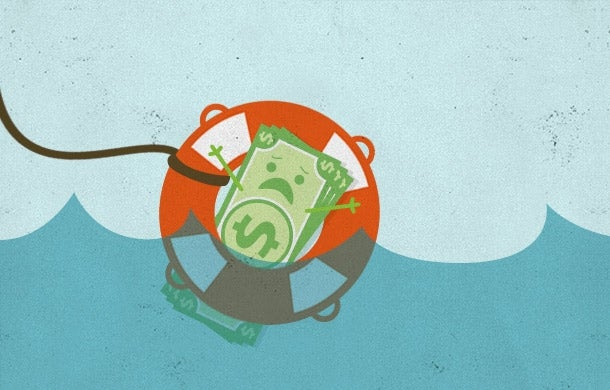7 Ways to Save Big Bucks On a Patent Attorney It's easy to run up the bills when hiring a patent attorney. Here are some steps to keep you from blowing your whole budget.
By Stephen Key Edited by Dan Bova
Opinions expressed by Entrepreneur contributors are their own.

Over the past 25 years, I've spent hundreds of thousands of dollars on attorneys alone. I have filed more than 25 patents, some of which I unfortunately had to defend in federal court. I've learned how to save money while getting the most out of working with an attorney. Here are seven key lessons:
1. Remember: Your attorney works for you. Like any other person you hire, you need to set specific boundaries and talk about expectations before you start working together. It's important to get a bid for the job you want done because expenses can quickly escalate. And of course, if you're going to be working closely with your attorney for an extended period of time, make sure you choose wisely. You'll be married to one another for a little while.
2. Use referrals. There's no better endorsement than a personal one. That said, there are a few other strategies to finding the right patent attorney for you. Consider reading other patents in your product category and contacting the authors. Having an attorney that is familiar with your technology is a plus, but not an absolute necessity, unless you are in a highly specialized field like software technology or medical technology, for example. If your idea is simple, a good patent attorney should have the expertise and background to get the job done.
3. Don't constrain yourself by physical location. Patent law is federal. Over the course of my career, I have rarely actually sat down face-to-face with one of my attorneys. I have found that working with patent attorneys on the West Coast and East Coast is typically more expensive than working with an attorney in the Midwest. There are higher overheads in major cities that will be passed on to you. So if you find a patent attorney in a smaller city, you might get a better deal.
4. Understand the pros and cons of working with a large firm versus an independent practitioner. Most large firms are full service, meaning they are able to cover a wide range of intellectual property like trademarks, copyrights, licensing agreements and even litigation. They also tend to have experienced attorneys. If you have to go to court, being represented by a large firm tends to give you more clout. However, they're also more expensive. More likely than not, you'll start out working with a seasoned senior associate or partner, but he or she will soon pass off your case to another attorney with less experience. So the senior attorney will oversee and manage the process, but he won't be directly involved.
On the other hand, independent patent attorneys are usually more affordable and will work directly with you. But patent law is very specialized, so you might end up having to work with more than one attorney to get all of your legal needs covered. Either way, patent law is a war of words. I've seen it firsthand. Hire someone whose work you respect and trust. Always make sure to read the patents they have written.
5. Patent attorneys are only as good as the information you provide them with. Never forget that you're the expert. To work effectively with an attorney, you need to know your invention inside and out, which means looking up prior patents yourself, and knowing the difference between them and your idea. Don't take a passive role and assume your attorney is going to do everything you want. Send them a prototype if you can. Definitely send over your sell sheet.
Always read everything they write in your patent application and make sure you understand what they've written. Recently, I discovered how important it is to explain the big picture to my attorneys. When I explained the benefits of my idea and how it was going to help people, it was like a light bulb turned on -- all of a sudden, they got it.
6. Get everything in writing. Make sure you understand how your patent attorney bills clients. Do they charge by the hour or for the job? I prefer to get an idea of the big picture; it's easier to compare estimates that way. Keep all of your bills and look at them line by line. If they do overcharge you, you can usually get them to reduce your fee to your original bid, minus 10 percent.
7. Educate yourself. Learn as much about the legal process as you can on your own and save only the important questions for your attorney. On that note, ask if you can record your conversations. If you don't understand something the first time around, you can listen to it again. Send an email with your questions before you speak on the phone. This will save you time and money.
If I had heard some of this advice before I started working with an attorney, I would have saved myself a lot of money.












